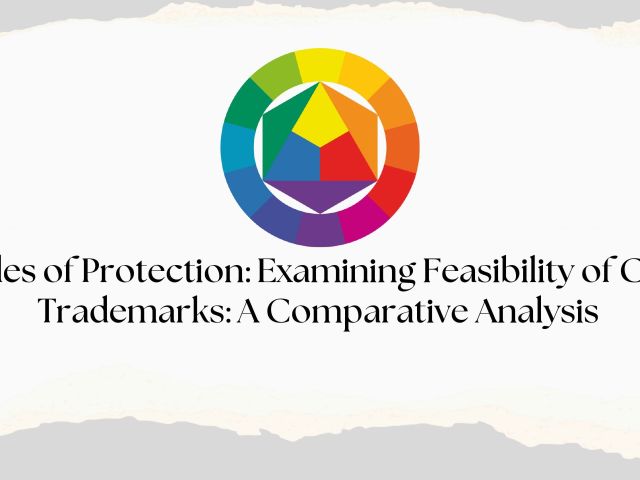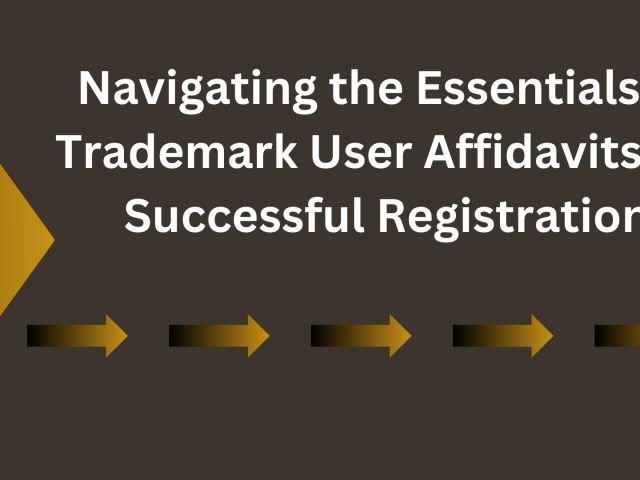In the case of Abercrombie & Fitch Co. v. Hunting World Inc. the court laid down five categories to classify marks. This classification is known as the Abercrombie Test, it devises the Spectrum of Distinctiveness. The categories are:
*Generic Marks
*Descriptive Marks
*Suggestive Marks
*Arbitrary Marks
*Fanciful Marks
For the purposes of this discussion, we will look at Descriptive Marks.
A trademark is considered descriptive if the immediate interpretation of the mark conveys the direct nature, character or quality of a product. For example, “Cold & Creamy” would be considered a descriptive mark for Ice-creams. More often than not, a descriptive mark is considered “Non-distinctive” which obstructs the possibility of registering a trademark for such a descriptive mark. But, a descriptive mark can be registered only under a special circumstance. In order to get a registration on a descriptive mark, the proprietor needs to prove that his mark has acquired distinctiveness and a secondary meaning over the period of time due to its excessive and dominant use in the market.
In the case of Pidilite Industries Ltd and anr. v. Vilas Nemichand Jain and anr. (Bombay High Court), the court said;
“I understand him to mean that the term in question must have slipped its purely descriptive moorings, and arrived in much deeper waters where any invocation of the expression is, in the public mind and in the public perception, not just dominantly and usually associated with the plaintiffs’ product, but is associated with that product to the exclusion of all others.”
Which means that, in order for a mark to acquire secondary meaning, the mark should have such an effect on the consumer’s mind that he immediately associates that mark with the proprietor’s product.
Bookmyshow Trademark Case
On 18th December, 2017, Delhi High Court decided on an application filed by the popular entity “bookmyshow” (that books e-tickets for movies, and other events), who had filed for an interim injunction against another proprietor who were seeking to get registration for their mark “bookmysport” (books e-tickets for sports events). Bookmyshow asked for an injunction on the prefix “bookmy” as the prefix was deceptively similar to their trademark. The application was filed on the grounds that the defendant was using the prefix in an attempt to exploit the goodwill and reputation of the plaintiff.
The Delhi High court rejected the application. The court relied on the point that what was the nature of the prefix in question that was common with both the parties; was it descriptive in nature or inventive. For this aspect, the court relied on the judgment of JR Kapoor v. Micronix India (Supreme Court), where the court said that if a mark is descriptive of a particular industry, then it cannot be deemed inventive.
The court also relied on another case PP Jewellers Pvt Ltd vs PP Buildwell Pvt Ltd. wherein it came down to a conclusion that if the prefix is being used by other companies in similar context then the word is descriptive rather than distinctive.
Hence, after looking at all the evidence and matters in hand, the court decided that bookmysport was not the only entity using the prefix “bookmy” for its trademark but there were other several entities using the same prefix. Also, the plaintiff failed to establish that the prefix “bookmy” was exclusively associated with it in the minds of the consumers hence the court dismissed the application.
CONCLUSION
The catch, in this case, is the shortcomings of the plaintiff i.e. bookmyshow. In a situation where, as opposed to the assertions made by the defendant, there were no other users of the prefix “bookmy” other than the defendant himself, the plaintiff had only to prove that the prefix was exclusively associated with his service as it was a popular online booking portal, providing for exceptional and successful services for over 10 years and that, even though “bookmy” was descriptive in nature, over the past 10 years, it has acquired distinctiveness and a secondary meaning, the application may not have been rejected by the Court. But in the present scenario, there are several other online portals with the prefix “bookmy” like bookmystall.in, bookmydarshan.online, bookmytrain.com, bookmyactivity.co.in, bookmyevent.com, bookmyforex.com etc. providing similar services as that of the plaintiff. The problem here is that the plaintiff did not raise any objections to these entities and has focused only on the defendant. The only possible recovery from this mess for the plaintiff would be if it filed a combination of infringement applications against all the other users, and demanded exclusivity over the prefix “bookmy”.
You may also interested to read other trademark cases as shown below:
What’s in a name? : The Battle For ‘Maruti’
Toyota Loses Prius Trademark In India
Dilution Of “Bad Faith” Pleadings In India
The bruising battle over the Orchid Trademark
Battling the Dragon: Apple’s Fight For ‘IPhone’ In China
Battling the Dragon once again: Facebook Emerges Victorious!
Hong Kong Goes The China Way: This time with Gucci




